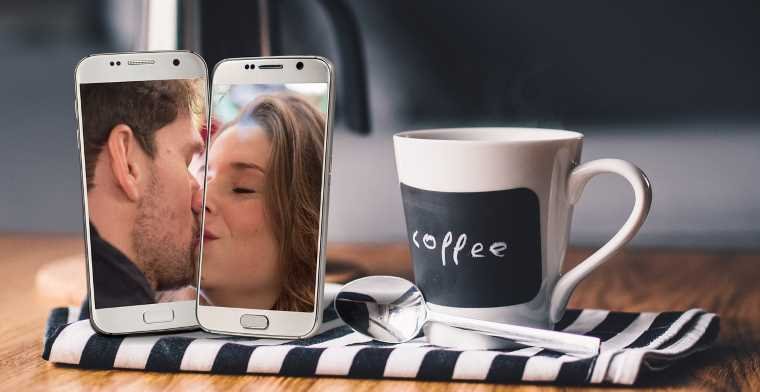A psychology professor and his former student say that their relationship app helped improve the relationships of 80% of the couples in a recent pilot study.
The app’s developers say previous methods aimed at improving relationships developed in recent decades have often suffered the need for constant intervention by trained facilitators or low levels of engagement. However, 99% of their study subjects regularly engaged with this new app, with the majority also reporting that it was easy and fun to use.
Building the Ultimate Relationship App, Agapé
To develop their smartphone-based relationship app, Ronald Rogge, an associate professor of psychology at the University of Rochester, and his former student, Khadesha Okwudili, tapped into forty years of marital and couples research, as well as the professor’s own nearly three decades researching the complex dynamics of both romantic and familial relationships. They also focused on avoiding the pitfalls of previous methods by creating a process they hoped people would enjoy, which should result in higher engagement.
“Our primary goal was to create an app that couples would intrinsically enjoy using, which would naturally grow in popularity, and thereby organically extend its reach,” said Rogge in a press release announcing their new study. The result is an app they named Agapé.
How Does It Work?
According to the duo’s recently published study, which appeared in the Journal of Family Psychology, “Agapé builds moments of connection by providing daily prompts to couples and then showing them one another’s answers when both partners have responded.”
Some of these prompts include basic relationship questions like “What’s something that your partner did in the past week that made you laugh?” or “Describe a time you were thankful to have your partner by your side.”
Hoping to keep engagement high, the app also offers more playful prompts like, “If your partner had a theme song that would play around them as they went through their day, what would it be and why?” or “What unique skills would your partner bring to surviving a zombie apocalypse?”
Once both parties reply to the prompt, they can see each other’s answers. Ideally, says Rogge, these exchanges will result in “enhanced awareness” and prompt “moments of connection” between partners.
Pilot Study Shows Promising Results for Relationship App
To put their relationship app to the test, Rogge and Okwudili enlisted 405 romantic couples that had been in a relationship for an average of 4.6 years each. Of that group, 31% of the couples were married.
Also, roughly two-thirds of the couples reported being “reasonably satisfied” in their relationships, while the remaining third were “notably not.”
To start, each couple underwent a comprehensive relationship assessment. Next, each couple was instructed to use the relationship daily for one month, including weekly assessments of relationship quality to measure progress. At the end of the month, each couple underwent another comprehensive relationship assessment.
According to the researchers, 80 percent of participating couples reported “improved romantic relationships” while experiencing a “decrease in perceived negative relationship qualities” and an “increase in relationship satisfaction and dedication.”
70 percent of individual participants reported “improvements in their own well-being,” including reports of “higher vitality and a better quality of life.” These results were also partnered with “a noticeable drop in depressive symptoms.”
As for the overall engagement, the researchers say 93 percent reported that the app was “enjoyable,” while 74 percent called it “easy to use.” They also report that the couples who responded to more prompts each day showed “stronger gains” in their relationship quality.
Other relationships may Benefit from Agapé
Although the pilot study focused on romantic couples, they note that their app should work for other relationship categories as well since “the fundamental principles that underpin couples’ ties generalize to other kinds of close relationships.” In fact, they say that, unlike most romantic relationships, the more people in your life that are sharing the app with you, the better.
“Using the app with more people in your life is likely to have even stronger individual benefits because we know that connecting with others is a fundamental psychological need,” Rogge said.
Study Limits and Conflicts of Interest
Along with the limited span of the one-month study, the researchers note that their couples lacked the diversity of the wider population. “Ninety-one percent were heterosexual, and the vast majority (84 percent) in their twenties and thirties,” they report.
The research duo are also stakeholders in the company that owns and markets the app, so the study was conducted under a “conflict-of-interest plan” with the University of Rochester.
Christopher Plain is a Science Fiction and Fantasy novelist and Head Science Writer at The Debrief. Follow and connect with him on X, learn about his books at plainfiction.com, or email him directly at christopher@thedebrief.org.

